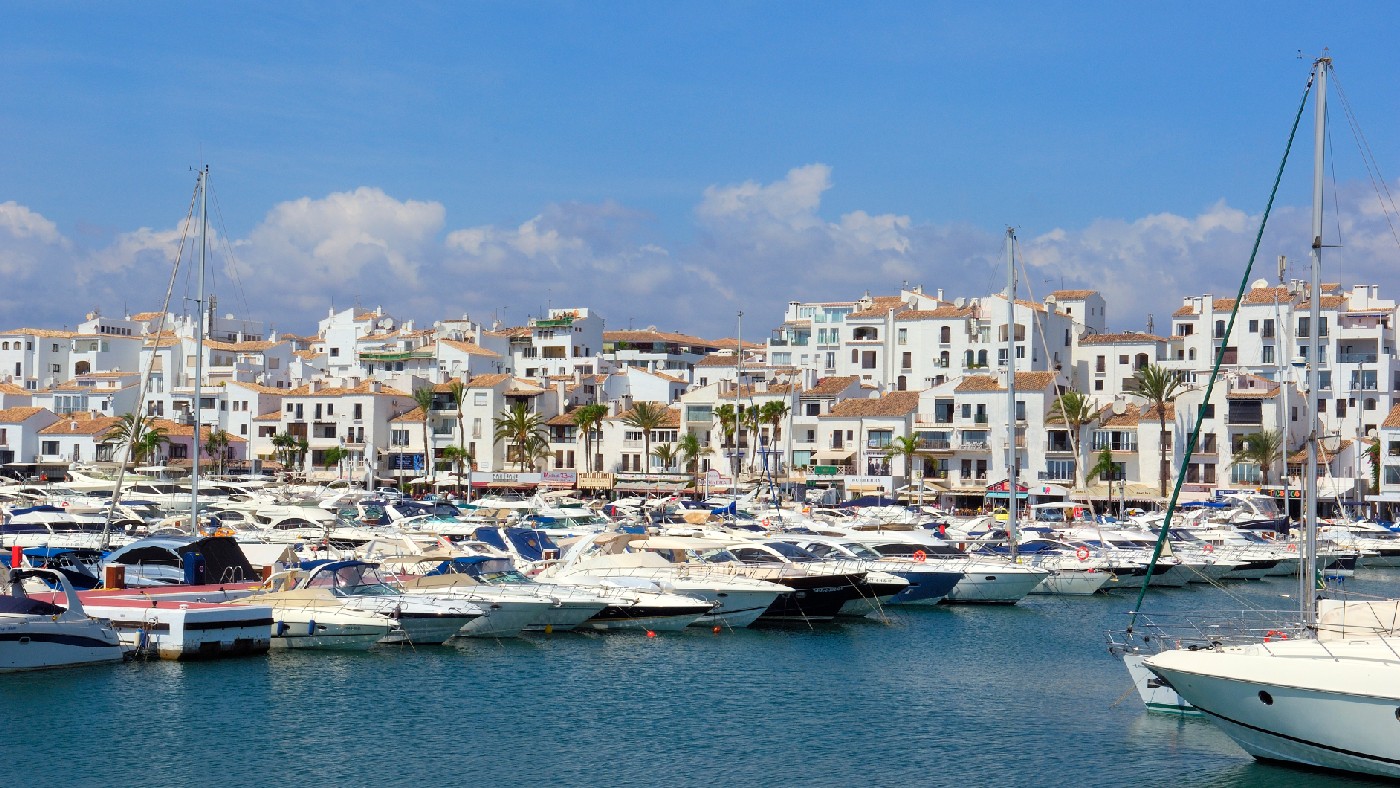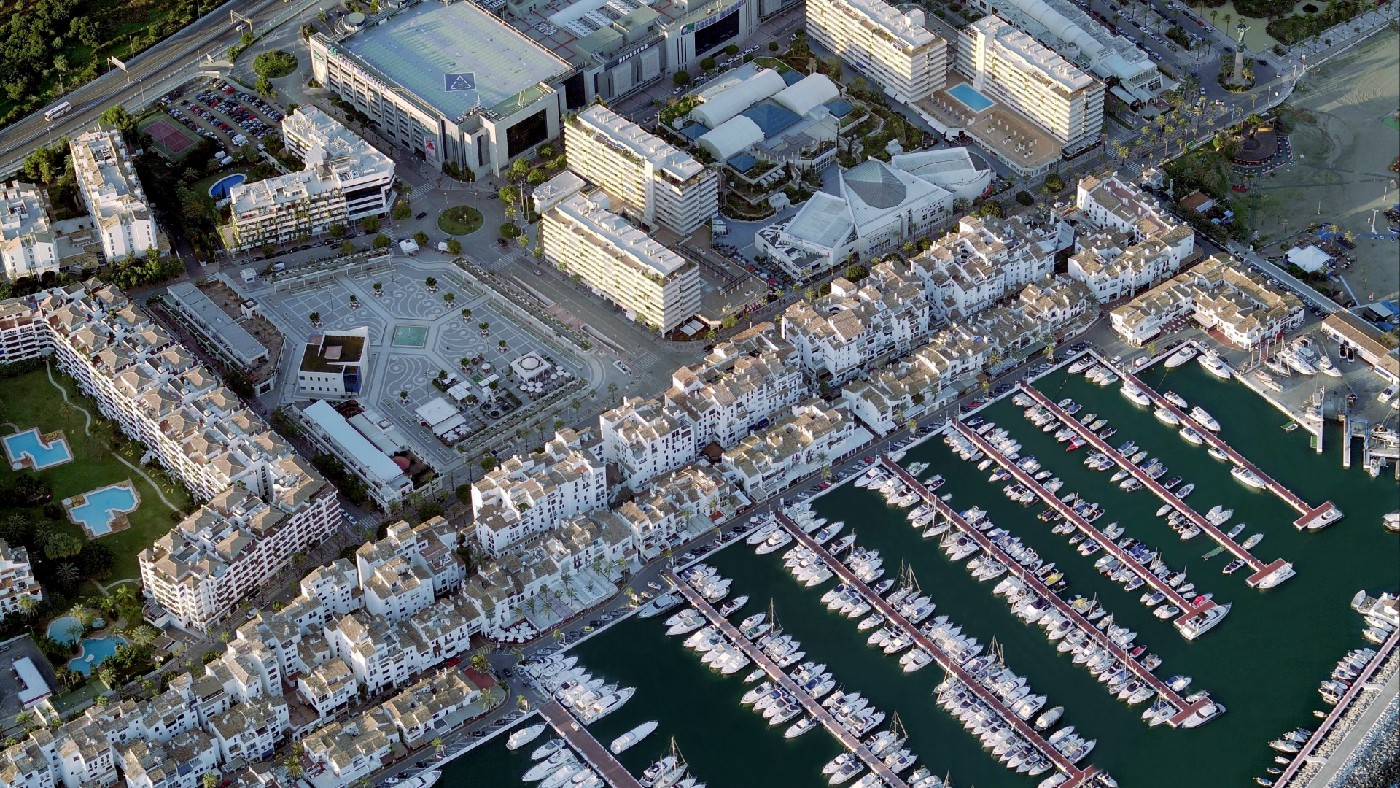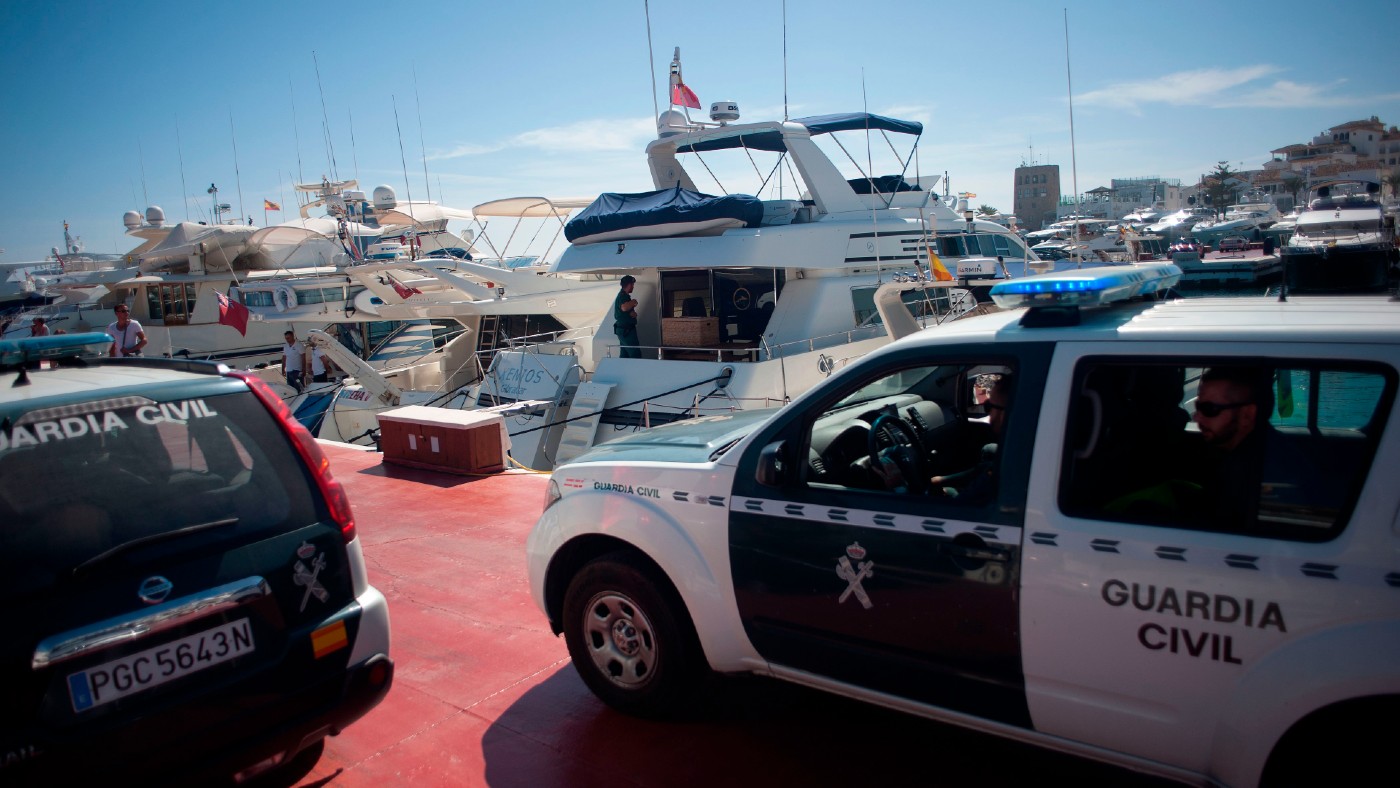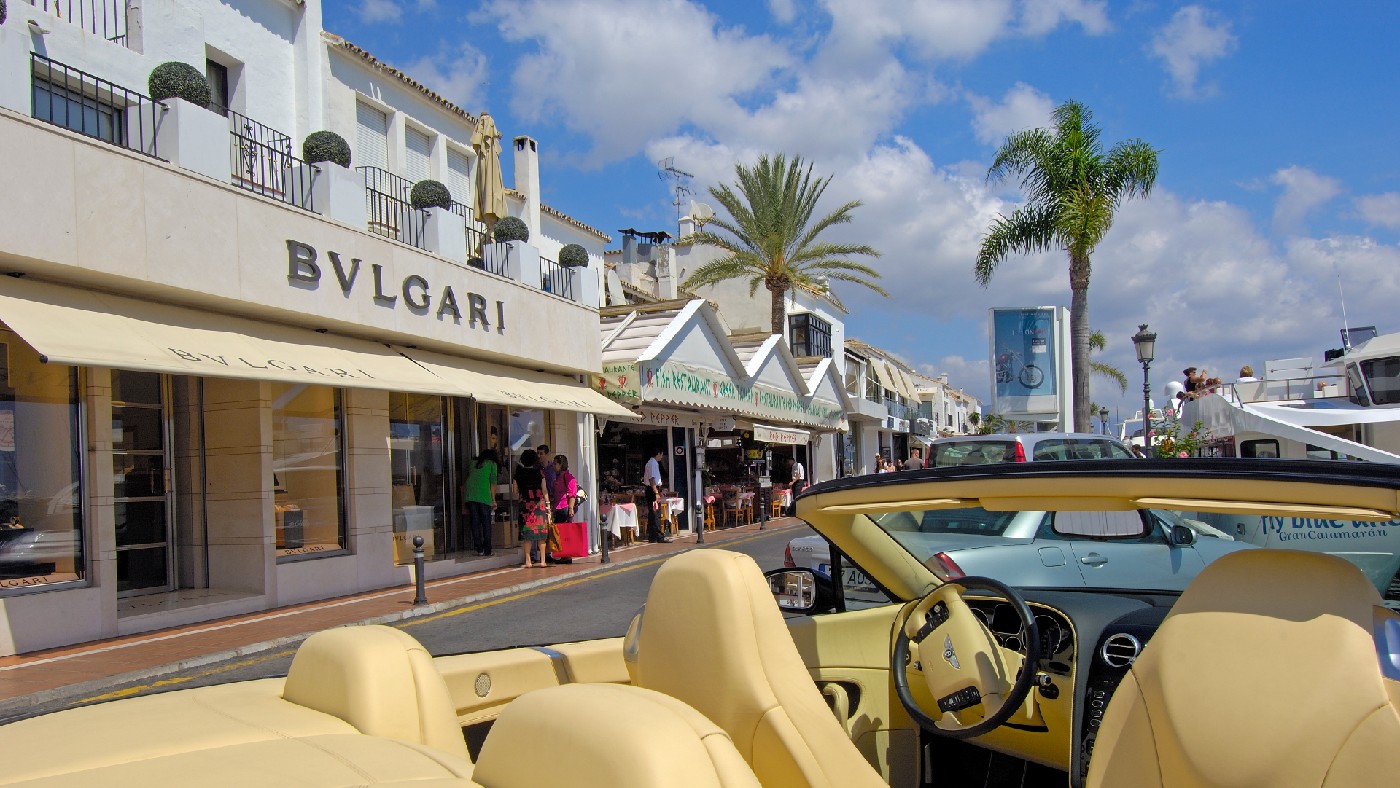How Marbella became the drugs capital of the world
Marbella has become a ‘United Nations of crime’ – and violent gangsters have come with it. Nacho Carretero and Arturo Lezcano investigate

A free daily email with the biggest news stories of the day – and the best features from TheWeek.com
You are now subscribed
Your newsletter sign-up was successful
One morning last autumn, a dozen or so locals were eating breakfast at a café under a clear Marbella sky, in front of the offices of the Special Organised Crime Response Unit (Greco), on the Costa del Sol. It’s an unobtrusive building in a working-class neighbourhood – and only someone with a sharp eye for detail might notice the two security cameras monitoring the front entrance. The café’s regulars drank coffee and ate toast, unaware that only 24 hours earlier, in another part of the city, Greco agents had rescued a man from a garage, alive, but with holes drilled through his toes. It was the latest local case of amarre, or kidnapping, to settle a score between criminal gangs.
That afternoon, in Puerto Banús, the wealthiest and most extravagant area of the city, a young British man with ties to organised crime walked out of a Louis Vuitton store and found himself surrounded by a crew of young Maghrebis, “soldiers” from one of the Marseille clans. “They didn’t want anything specific,” he said. “They just stared me down and said: ‘What’s up?’ They were looking for trouble... It’s getting really dangerous here,” he said, with no apparent sense of the irony of a criminal complaining about criminality.
It was in the 1960s, during Spain’s development boom, that the Costa del Sol became southern Europe’s tourist hotspot. Working-class holidaymakers thronged the public beaches and an emerging class of jet-setters found a piece of paradise in Marbella. The plan to develop the region succeeded, but success came with baggage. “This was the Francoist agreement,” said Antonio Romero, an author and former politician. “You, the criminals, come here to relax, don’t commit any crimes, and bring your money.”
The Week
Escape your echo chamber. Get the facts behind the news, plus analysis from multiple perspectives.

Sign up for The Week's Free Newsletters
From our morning news briefing to a weekly Good News Newsletter, get the best of The Week delivered directly to your inbox.
From our morning news briefing to a weekly Good News Newsletter, get the best of The Week delivered directly to your inbox.
The Costa del Sol is organised crime’s southern frontier – a stretch of urban sprawl extending from Málaga to Estepona, with Marbella, a city of 147,633 people, as its capital. According to the Spanish Intelligence Centre for Counter-Terrorism and Organised Crime, there are at least 113 criminal groups representing 59 different nationalities operating out of the area. To the south, less than ten miles of open water separates the region from Morocco – the world’s largest producer of hashish – and from the autonomous Spanish outposts of Ceuta and Melilla. Less than an hour’s drive away is one of Europe’s main entry points for cocaine, the port of Algeciras. Across the bay from Algeciras is the British overseas territory of Gibraltar, a tax haven separated from Spain by a fence. To the north rise the Málaga and Granada mountains, Europe’s main region for marijuana cultivation.

The mobsters blend in with their millionaire neighbours. Marbella is not so much a rich place as a place full of rich people. A quick search yields 3,974 results for homes listed at more than €1m – that’s 100 more listings than the entire city of Madrid – in a city where the per capita income (€21,818) is less than the Spanish average.
In recent years, the situation has deteriorated. Bosses now bring their “soldiers” with them. “Young gangsters, armed and really dangerous”, said a member of Greco Costa del Sol. A member of the Camorra, the Naples Mafia organisation, who has lived in Marbella for years agrees. Francesco, who did not want to give his real name, had agreed to meet at a restaurant in Puerto Banús, where he always has a table waiting. “The young guys who are coming here now don’t live by any codes, they don’t have any respect... These guys running around with their little bum bags, while their bosses are in Dubai.”
The most immediate sign of this change is a rise in violent clashes between gangs: “The violence is gratuitous. In the past, criminal groups negotiated, they talked to each other,” said Antonio Rodríguez Puerta, chief of the Udyco Costa del Sol (the National Police’s drug and organised crime unit). “They’d lose some of their supply... and they’d come to an agreement. Now we’re seeing that if something like that happens, in the majority of cases, they just go straight to killing.”
A free daily email with the biggest news stories of the day – and the best features from TheWeek.com
The arrival of the “soldiers” has had other effects. “For the first time, the upper-class elites are leaving Marbella because they’re afraid,” said Ricardo Álvarez-Ossorio, a lawyer who has represented several members of the criminal community. “I wear a lot of bracelets,” one resident of an upmarket Marbella suburb said, noting the value of each in tens of thousands of euros. “And when I go running, I cover them up with a wrist band. I don’t leave them in the house.” Asked if she ever thinks about moving, she said: “Yes. In fact, I’m sure that’s what I’ll end up doing.”
The pandemic sped up Marbella’s transformation. Last year’s border closures left gang members trapped and their merchandise stranded. “The border closures have caused exports [from South America] to drop,” a Colombian drug trafficker living in Marbella told us, sitting on the terrace at a local hamburger joint. “Here’s an example: cocaine that leaves Brazil or Uruguay comes hidden in leather from Paraguay. And if there’s no demand for leather, there’s no way to get the cocaine out.”

A steep drop in supply last year pushed cocaine prices over €33,000 per kg. It also caused a swarm of activity, as everyone scrambled to find alternative ways to get the drugs in. “After Christmas, everything changed,” said the Colombian trafficker. “Everything that’s been accumulating has started to get out, and now the market’s flooded. The price of cocaine has gone down to €27,000. That’s 25% cheaper than it was a few months ago.”
Marbella relies on a police precinct with far fewer resources than that of any of Spain’s provincial capitals, despite much higher crime rates than most other cities. The Marbella police station receives about 150 calls a day, and handles about 32,000 cases a year – numbers typical of cities two or three times bigger. Lack of resources and personnel was the common complaint made by police officers interviewed for this article. “We only have four patrol cars,” said one. “We don’t have enough bulletproof jackets. And there are lots of gunfights. We should get the same extra security designation the Basque country gets.” The police predicament was not lost on the Naples Mafioso: “We’re way ahead of the police, we’re not that worried about them. We have better resources, better technology.”
The increasing violence on the Costa del Sol has received little media attention beyond the local press. “A few months ago, a Polish man turned up with gunshot wounds in both legs,” said one officer. “He didn’t file a complaint and didn’t want to testify.” In another case, an Irish citizen was shot in the face in New Andalucía, just outside the city. “He didn’t want to be involved in the investigation.” “You can’t report everything to the press, or it would create panic,” admitted a Greco agent. “The majority of residents are unaware of the situation here, they don’t have the slightest idea about what’s going on around them, let alone the rest of the Spanish population. And maybe that’s how it should be.”
Pablo, originally from Colombia, has for years been moving 50kg of cocaine a week to markets in Spain, and now he is climbing the ranks, thanks to his contacts on the other side of the Atlantic. Within the Marbella ecosystem, he’s a mid-level trafficker with certain typical characteristics: an ostentatious sports car, shirts featuring brand names such as Valentino and Dolce & Gabbana, hair in a side-parting with the sides shaved, a tracksuit, white trainers and, of course, a batch of mobile phones. The phones are by far his most important possessions: they allow him to communicate with suppliers, buyers and people working for him, under the noses of the police, using encrypted messaging technology. In the eyes of the Costa del Sol’s criminal underworld, if you don’t have multiple mobile phones, you’re nobody. And when you sit down at a restaurant or bar, convention dictates that you lay them all out on the table – a warning sign for all to see.
Tina, a young Colombian attracted by the Costa’s atmosphere of wealth, used to manage public relations for some of the best clubs in Marbella. “In the clubs frequented by los malos (the bad guys), a table reservation costs €5,000, drinks included,” she said. “They’ll order €1,500 bottles of champagne or bottles of vodka or tequila, until they reach their table limit. But they always end up spending more... They’re not classy people. The scariest and most violent are the English. And no one stops them because everyone’s afraid,” Tina says. “There aren’t any door searches. People bring in guns, for sure.” And prostitution? “In the upscale clubs, it’s absolutely essential.” But without all this, “Marbella wouldn’t exist. It would be like Torremolinos or Benalmádena: normal middle-class tourism, tourism for wage workers.”
“But all of this is just a phase,” said Pablo. “The ultimate goal is to not be such a show-off, to make a nice life with a family, to live like the big bosses, where no one has any idea what you do. All that stuff about ‘plata o plomo’ [‘silver or lead’ – take a bribe or take a bullet], that’s just from the movies... all the TV shows and movies that lure young people to this world, thinking they’re going to get rich.”

The 100 or more organisations on the Costa del Sol range from powerful, tightly structured Mafias, like the Serbian, Dutch and Moroccan groups, to gangs of small-time burglars. Most specialise in activities linked to trafficking drugs. Few can manage the whole process alone. A prosecutor in the region says: “Anyone who thinks that the criminal organisations are the same as they were before – structured like a pyramid, managing every aspect of the business – well, they’re wrong. It’s not like that any more. They’re not cartels, they’re service providers: it’s the Uberisation of organised crime.” There’s no division of territory. “It’s not possible to make a map, like they’ve done... with Mexico. Instead, you’d have to make a diagram that reflects the division of labour, the different roles and activities of each organisation.”
“The Costa del Sol is a kind of hub, or ‘co-working’ space, where almost every major criminal group in the world has some sort of presence,” says a senior National police agent. “It’s a UN of criminals for a globalised world.” Beyond its own frontiers, Marbella is inextricably linked to Dubai by crime. Most of the area’s crime groups live between the two cities. “Dubai is like Marbella, but with no rules and no law,” said one high-level Costa del Sol criminal. “It’s extremely rare for them to arrest anyone there. Most of the top bosses live there, and spend the summer in Marbella. The soldados go to Dubai when they feel like they’re under surveillance. We’re protected there. There’s no extradition.”
“Drug trafficking is a global phenomenon, but Marbella is the capital,” said an agent from Greco in Cádiz. The Netherlands even has a special prosecutor based in Spain. But traffickers’ greatest fear is theft and vuelcos, or ambushes. “A vuelco by another organisation is much more common than a police raid,” said Juan, a trafficker from Málaga who did not give his real name. “As soon as you agree to the job, the most important thing is discretion... If word starts to spread, you’re f***ed, they’re gonna come for you.” To protect against vuelcos, groups will hire security, which is usually contracted out to the Naples Camorra. “If you try something, we’ll kill you,” said Francesco, the Camorrista. “Usually, the shipment has a GPS tracker. If at any point the signal disappears, we kill you,” he said nonchalantly.
“To smuggle in large quantities, you have to have someone in your pocket,” Pablo said. “The organisations have people in the Guardia Civil, the National Police, customs agents and dock workers.” Agents, however, are constantly complaining about the lack of resources in what they say is an unequal fight. “It’s easier to organise a drug-running operation than it is to investigate one,” said one Greco agent. “There should be one agency solely dedicated to tackling drug trafficking, like the DEA [the US Drug Enforcement Agency]. If we’re the main entry point for all of Europe, how is it we don’t have something like that?” “Whatever they do,” said Francesco, “none of this will ever stop. Drug money is what makes the world go around.”
A longer version of this article appeared in El País and was also translated and featured in The Guardian